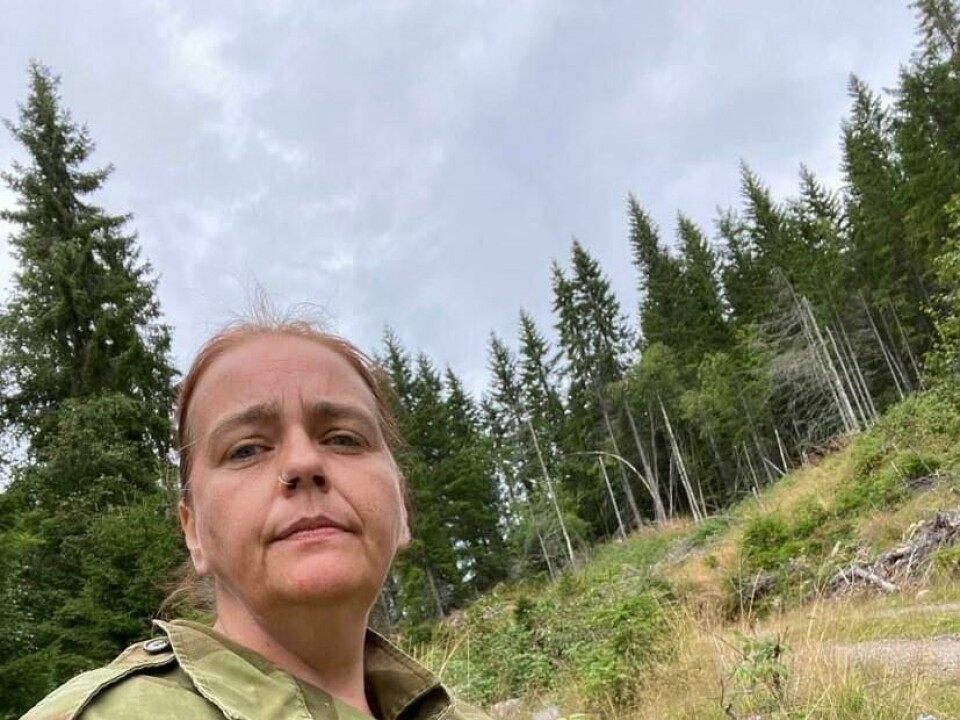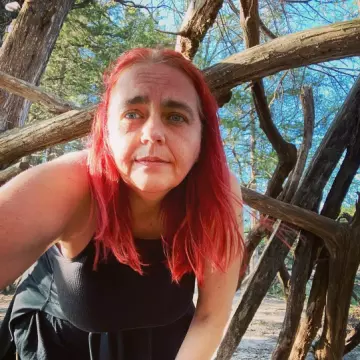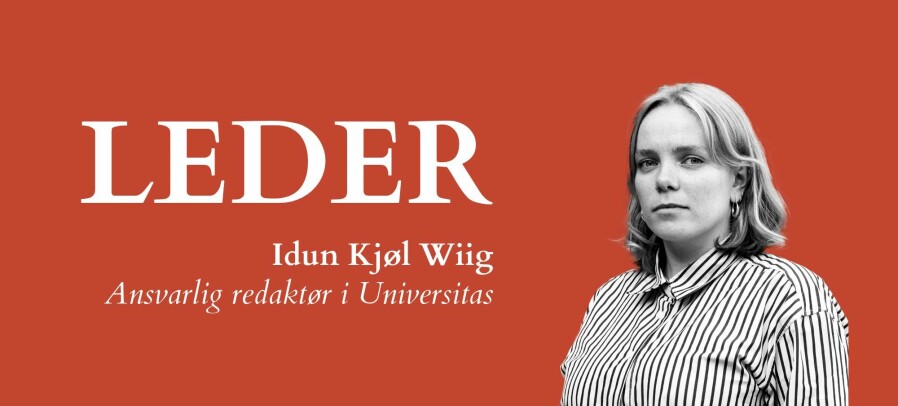
Volunteering as an International Student in Oslo: the Why's and the How's
Give back and keep growing with these volunteer opportunities.
Volunteering makes things real. As students in higher education, we spend an awful lot of time with our noses in books, but it is up to us to ground what we are learning in actual life, and to find places where our own contributions might make a difference.
Volunteering makes things real
Shortly after arriving in Oslo this past August, I responded to a Facebook post seeking volunteer role players to participate in a Hostile Environment Awareness Training (HEAT) offered by the Norwegian Refugee Council. The purpose of HEAT sessions is to simulate realistic environments in active war zones, to mentally and physically prepare staff from humanitarian organisations who are being deployed to dangerous areas of the world. I had done de-escalation trainings with the police as a crisis role player back in the United States, but hoped to learn more about what it means to provide aid to those who have been displaced due to active conflict. Indeed, I did.
Whether fostering animals, working with youth, or visiting individuals who experience isolation, volunteering as a student can help shape the future we want to see, and our own capacity to build towards that future.
I spent only two days of roleplaying on the outskirts of Oslo, but the experience opened my eyes to the kinds of challenges humanitarian staff face as part of their international work. Though I can’t go into detail about what those days were like, I can tell you that I emerged with a great sense of respect for those who provide humanitarian aid in crisis. The HEAT session also boosted my awareness of the profound difficulties that refugees face as a consequence of conflict, and of the monumental resilience that they must exhibit in order to make it through.

Whether fostering animals, working with youth, or visiting individuals who experience isolation, volunteering as a student can help shape the future we want to see, and our own capacity to build towards that future. It helps us to build real-life insights and to keep our empathy for, and connection with, others at the forefront of what we do.
Connecting to Norwegian society, and our own interests
The best way to contribute is to do something you enjoy and find engaging, and where you feel useful.
I reached out to Stian Slotterøy Johnsen, the Secretary General of Frivillighet Norge, who was happy to respond to some of my questions about volunteering, observing that, “To be a volunteer while studying in Norway is a unique way to get to know and interact with people, to learn skills and experience culture and to have a meaningful time next to your studies.”
“International students may volunteer in student organisations or spend time in any of the other organisations that have activities in Oslo,” says Stian. “The best way to contribute is to do something you enjoy and find engaging, and where you feel useful. There are thousands of organisations and activities to engage in.”
I wondered, what about the language barrier? Is it possible to volunteer if one hasn’t yet attained proficiency in Norwegian? According to Stian, “Most organisations will welcome you if you speak English, but some might be easier than others to join without Norwegian skills. The best thing is to find something that interests and engages you and then talk to them to find out if they have an environment suited for non-Norwegian speakers.”
How to find volunteering opportunities in Oslo?
“A good place to start is either to check out the student clubs at UiO or to do a search at Frivillig.no for Oslo, or the part of town you live in,” recommends Stian. “Frivillig.no is a national portal for all the volunteer organisations to call out their needs.” Listings here are typically in Norwegian, but if you open the page in Chrome you can auto-translate into your own language for ease of reading. While not all of the organisations listed here have active postings at the moment, if you find something that interests you, reach out anyway, as they may still need volunteers.
When asked for ideas about places where international students might best be able to contribute, Stian was kind enough to start a preliminary list of organisations, which include:
“Also, in general, all activities for refugees could be relevant,” he adds.

“An awesome experience”
As an international student, it can be easy to lapse into using English all the time; volunteering is a way of getting out there and putting those classroom language skills to use.
A fellow international student, Bency, who volunteers both with Frelsesarmeen and a Rødekors family center, reflects that these experiences have been meaningful and play an important role in developing an open mindset. She helps to prepare meals and organize activities for children and parents, and sometimes goes on day trips with families. The mission of Frelsesarmeen is to contribute to social engagement, belonging, and faith, and to provide services for those who find themselves on the periphery due to poverty or other reasons. The mission of the Rødekors is to reveal, prevent and alleviate human suffering and distress.
Interacting with people of different ages and cultures is “an awesome experience,” she says, but it also provides her with a space to network and gain practical work skills. In fact, Bency includes these volunteer positions on her CV; they demonstrate an ability to be successful in a professional Norwegian context and show her commitment to giving back to society (read more about how international students contribute to Norway here).
While speaking Norwegian in either of these volunteer positions is not a requirement for Bency, it is an advantage. Bency is still learning Norwegian; her volunteer work gives her a place to practice her language skills, and to engage in dialogue with others in Norway, especially kids. “I make a lot of mistakes, which is really funny,” she says. As an international student, it can be easy to lapse into using English all the time; volunteering is a way of getting out there and putting those classroom language skills to use.
Broadening your perspective
Being a volunteer gives me the space to be the person I want to be without relying on a job to define me.
When I decided to sign up as a language café volunteer at Caritas, an organization that supports immigrants and refugees integrating into Norwegian society, my friend D.B., who’s informally served as my international advisor this past year, teased me – “For an American, you’re kind of an anti-capitalist! Shouldn’t you find a part-time job before you start giving your time away for free?” I laughed because, though it’s true that I need to find work, his comments made me reflect on the personal significance of volunteering. Being a volunteer gives me the space to be the person I want to be without relying on a job to define me, and I’m glad to share my Norwegian language skills with others.
As a master’s student in multilingualism, I’m interested in how people use their repertoires of languages to help them get through life; when we go around the room on Thursday nights and participants share where they’re from and what languages they speak, I’m reminded of how extraordinarily versatile human beings can be. I think of the quote from author Amy Chua: “Do you know what a foreign accent is? It’s a sign of bravery.” I would add that it’s a marker of special insight as well; if you want to broaden your perspective in life, spend time with those who are translating their experiences into entirely new cultural contexts. I’m learning a lot.
It surprised me when the very same D.B. who had teased me about my own volunteering told me that he had signed himself up to volunteer as a visiting friend (besøksvenn). D.B. was paired with an older man who wanted someone to speak English with. Over coffee, D.B. admits that the experience has been extremely giving. “This guy has stories! He used to work on a ship and has traveled all over the world.” D.B. visits every other week or so, for a couple of hours at a time, and says he’s touched that this friendship has become something they both look forward to. “How anti-capitalist of you,” I bunt back, and he laughs.
Speaking of stories and adventure, as summer approaches, Workaway is another organization that deserves mention for international students interested in giving back while experiencing the best of Norway. For a small fee (49 € for individuals and 59 € for friends/couples) you can sign up for a traveler membership that provides access to volunteering opportunities across Norway and beyond. These experiences typically provide room and board in exchange for work, which ranges from helping out on gardening or farming projects to renovating old fishing boats or assisting in the kitchen. Each experience is unique and organized around cultural exchange; some have minimum stays and ask for approximately 5 hours of work a day, so make sure to read each posting closely. Workaway reviews each profile manually and offers 24-hour support in case issues arise.
































